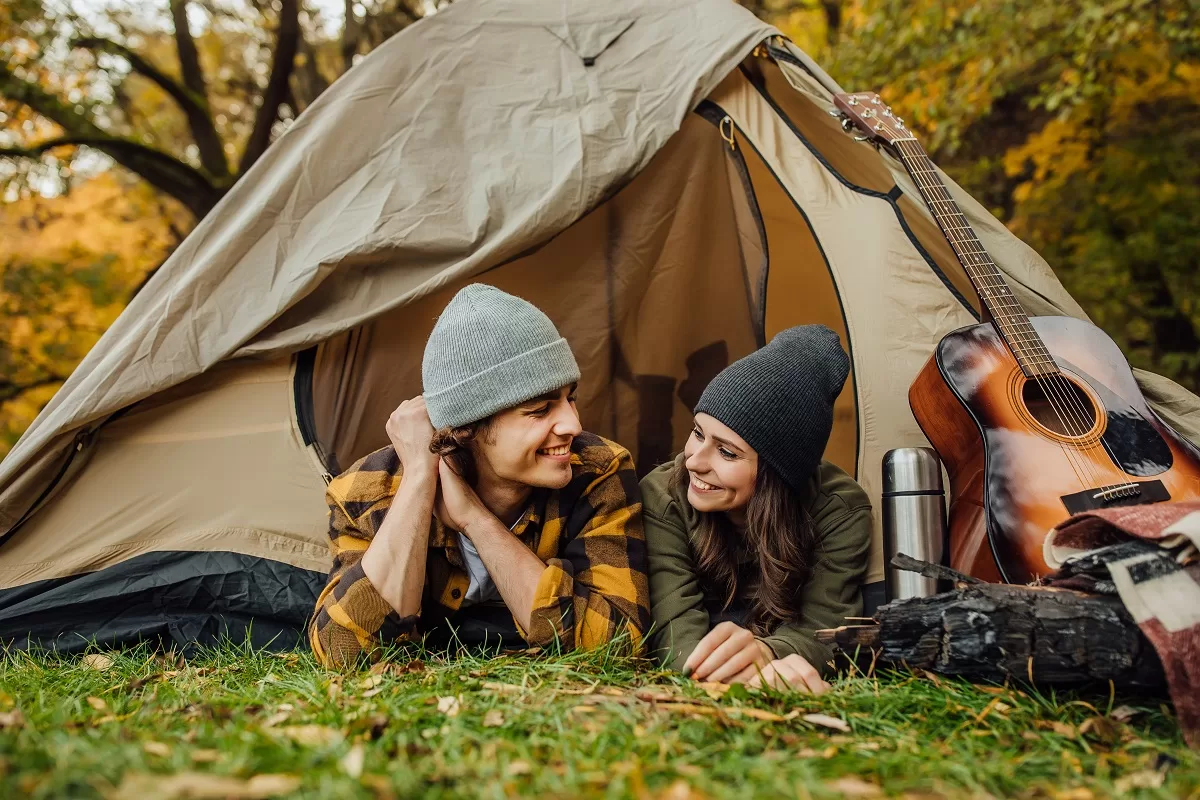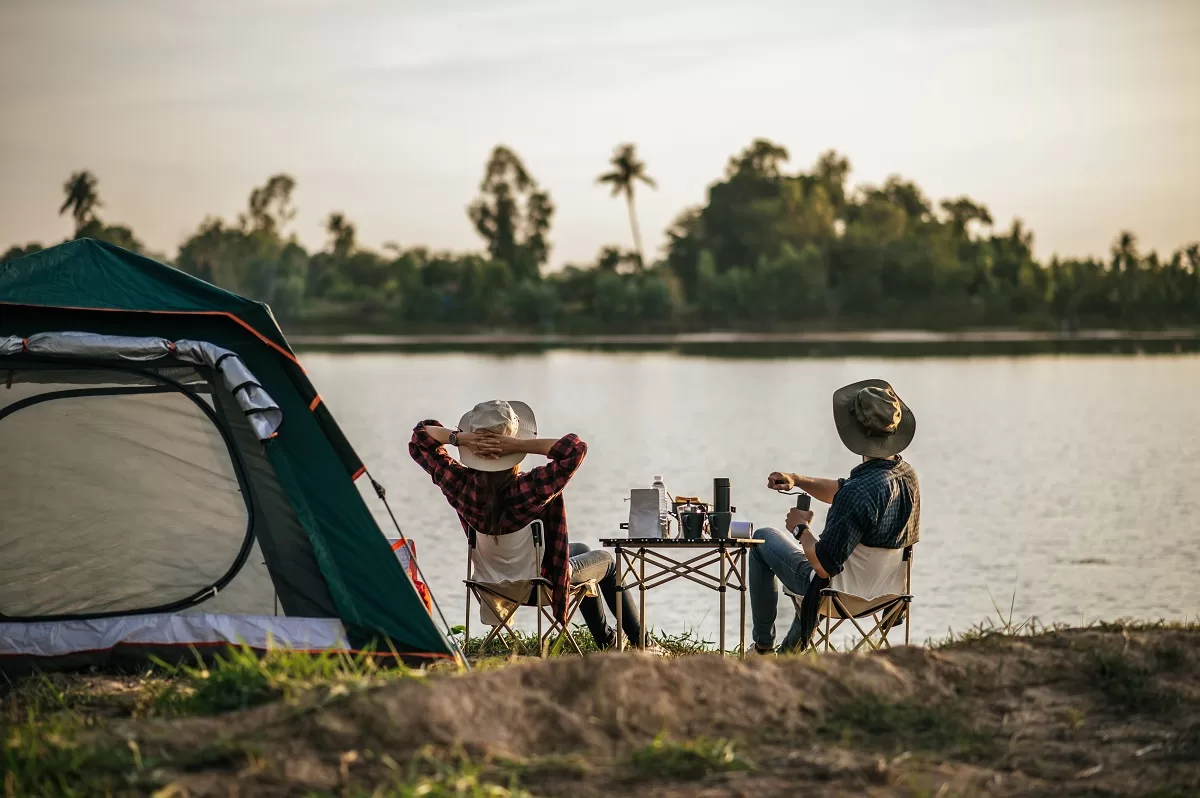Camping gives you a chance to spend time one on one with nature, enjoy the peace and quiet away from the campus, gain plenty of unique experiences, and expand your horizons. It can even improve your relationships with friends and family. However, a journey like this is full of various challenges. So it’s crucial to prepare well. Read on, and we will tell you about the basic principles of camping that will help you make the most out of this experience!

Plan in Advance and Prepare Well
Unlike traditional traveling, backcountry traveling and camping, in particular, is never as comfortable. Neither is it as safe as staying in a hotel. Due to these reasons, the first and most crucial principle of such trips is in-advance planning and preparation. Lack of planning can lead to a variety of unpleasant situations, discomforts, and damage to natural resources. Therefore, the earlier you start mapping out your trip, the better.
Delegate your pressing tasks to a trusted capstone project writing service and focus 100% of your time on research and preparation. First of all, you must decide on a suitable location based on your preferences, needs, weather, and other factors. Then, you must also take care of the following:
- Choose the campsite and make reservations;
- Study the selected campsite and define what amenities it has;
- Research the area you are traveling to;
- Plan your meal plan;
- List all the needed equipment;
- Plan your road trip to the destination.
If you map out a detailed plan that considers all of the above, you will make your trip safe and enjoyable. So don’t skip this first step.
Pack Smart
When you are at a campsite, you won’t have access to many habitual things and services. Thus, wise packing is the next core principle that can give you the best experience. In order to ensure that you have everything you need with you, you must research the destination area even more. Focus on weather forecasts, terrain specifics, local animals and insects, etc.
Based on your research findings, you need to make a list of the appropriate footwear, clothing, and gear. Pack strictly according to this list to avoid forgetting something. In addition, don’t forget to pack essentials like sunscreen, insect repellent, first aid kit, wet wipes, etc. And, of course, you must pack a lot of water, food, and healthy snacks like fruits and veggies.
Respect Nature
Getting some tranquil time in nature is the best thing about camping. However, just like nature has some potential hazards to you, you also have hazards to it. Some of your outdoor activities can cause a lot of harm to nature. That’s why the next principle of such traveling is to always be respectful and mindful of the environment.
There are a few core things that you must do to preserve nature:
- Don’t leave any notable trace behind you, including trash, pet waste, and other traces;
- When taking snacks and food, cooking, eating, and drinking outdoors, opt for reusable containers to minimize your waste;
- Protect natural waters;
- Be very careful with campfires and ensure they are completely extinguished after you use them;
- Stay on the outlined trails because they are meant to withstand foot traffic, but when you get off them, you can cause damage to the surface;
- Don’t take any souvenirs from nature (such as plants, rocks, etc.) as it can damage the natural habitat and ecosystem.
Learn these rules by heart to ensure that your trip will not cause any harm to the environment.

Be Aware of and Follow Safety Guidelines
When you are out in nature, you can face many different situations, some of which might be rather dangerous. For example, meeting a wild animal or getting into a dangerous area can really cause you a lot of disturbance and can potentially lead to injuries and other tangible health risks. Due to these reasons, one more crucial principle of camping is knowing and adhering to safety guidelines.
Of course, the safety regulations might be different from one area to another. Thus, we can’t give you a full list of things you should and should not do while in nature. Still, we can give you a few of the most important recommendations:
- Prepare and be aware of any potential risks around your destination area;
- Ensure that you bring plenty of water and food;
- Always carefully observe the weather and be ready for different conditions;
- Always keep your first aid kit at hand;
- Be aware of the local wildlife and never leave food out as it can attract animals;
- Avoid rivers with strong currents, cliffs, and other potentially dangerous areas.
These simple recommendations will help you have an enjoyable and safe experience. So don’t neglect them.
Have Plenty of Fun
Of course, camping isn’t the most comfortable, safe, or easy type of travel. For many young people, it can become a real challenge, which is why it’s so crucial to know and follow all these principles and safety regulations. However, despite all the risks and warnings, camping is still about having fun!
If you are setting off on this journey during the academic year, delegate your homework to the best paper writing services to have plenty of free time without having to worry about your grades. Grab your friends or family with you on this trip. And then, take enough time to appreciate the beauty and nature around you, enjoy fun activities, tell campfire stories, and otherwise enjoy your experience. Have a lot of fun to make your getaway truly memorable!
The Bottom Line
Going camping is quite popular among modern students. Such getaways really give you a chance to run away from the noise and rush of your everyday life on campus and have a lot of fun. But if you are planning an adventure like this, you must do it wisely!
Luckily, now you have a complete guide to making the most out of your adventure. Stick to the principles we shared with you in this article to make your camping getaway flawless and memorable!
